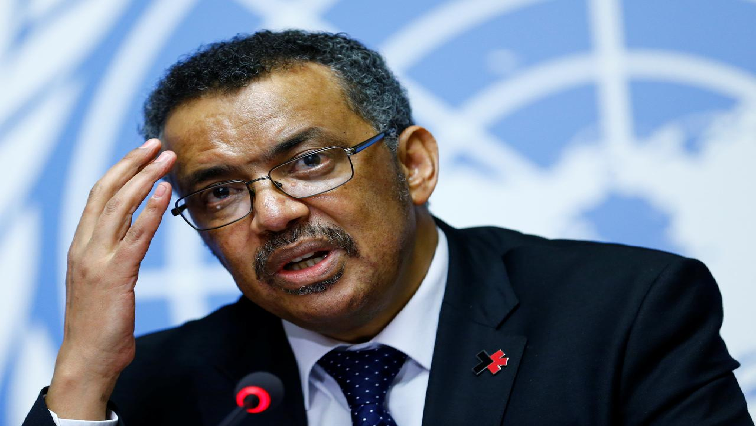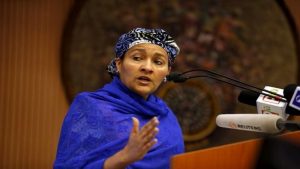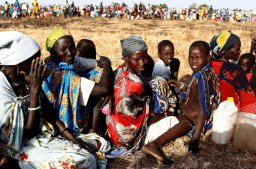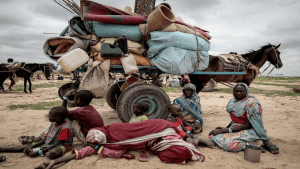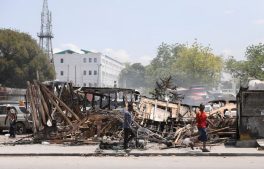The Ebola outbreak in the eastern Democratic Republic of Congo and its spread to the dense population centre of Goma, underscores a real risk of a spike in the disease, perhaps beyond the country’s borders.
That was the warning issued in a joint-statement by the United Nations, the World Health Organisation, the United Nations (UN) Children’s Fund and the World Food Programme to mark Thursday’s one-year anniversary since the DRC Government declared an Ebola outbreak in the country.
Two weeks ago, the WHO declared the outbreak a public health emergency only the fourth time such a declaration has been made in the organisation’s history.
Members of the UN Security Council also met behind closed doors in an informal interactive dialogue and are likely to begin negotiations on a Presidential Statement an action second only to a resolution on the current Ebola crisis.
World Health Organisation Director General Tedros Adhanom Ghebreyesus says, “The identification of the case in Goma could potentially be a game-changer in this epidemic. Goma is a city of 2 million people, near the border with Rwanda and is a gateway to the region and the world. We are confident in the measures we put in place and hope that we will see no further transmission of Ebola in Goma. Nevertheless, we cannot be too careful. I have, therefore, decided to reconvene the emergency committee as soon as possible, to assess the threat of this development,” says Ghebreyesus.
In the last year, there have been more than 2 600 confirmed cases, including more than 1 800 deaths in parts of Ituri and North Kivu Provinces while one in every three cases is a child.
More than 770 people have survived.
Aid agencies led by the WHO say they are mobilising all aspects of the response to stop the spread of the virus.
UN Spokesperson Stephane Dujarric says they are increasing community engagements.
“Surveillance at all points of entry and points of control in the area are being stepped up. They’re also increasing community engagement, risk communications and active case finding. In a joint statement to mark the one-year milestone the DG of the WHO, the USG for Humanitarian Affairs and Emergency Relief Coordination and the Executive Director of UNICEF and the ED of the WFP issued a joint statement adding that the latest case in such a dense population centre underscores the very real risk of a spike in disease transmission, perhaps beyond the country’s border and the very urgent need for strengthened global response and increased donor investment,” says Dujarric.
UNICEF has appealed for 170 million dollars of additional funding to combat the disease that has affected more than 700 children to date.
The Agency’s Health Specialist Jerome Pfaffman says, “Colleagues and communities on the ground are fighting the outbreak tirelessly. But we need desperately international community to back us up. UNICEF will need to triple its budget to respond to this complex crisis. When you are a mother and you have a child that is sick, you don’t know if this child has malaria, measles or Ebola. You need to be able to take care of that child, whatever disease it is.”
The United Nations and its partners are calling this a critical juncture in which the international community must reaffirm its collective commitment to the people of the DRC, with a stark warning that because this outbreak is happening in an active conflict zone, violence has prevented their ability to reach communities and work with them through health interventions and education to stop further transmission.


